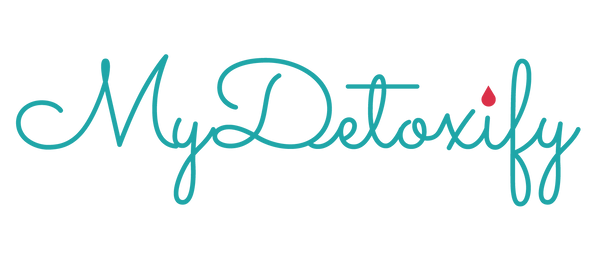There are several ways you can maintain immune health naturally to support your body's innate ability to protect against illness, as well as minimize the severity of symptoms should you fall ill.
1. Manage Your Stress to Mitigate Immune Suppression
Experiencing long term stress can take a toll on your immune system. Chronic stress elevates your cortisol and adrenaline hormones. Excess amounts of these stress hormones can cause increased blood pressure, elevated blood sugar, and decreased digestive ability. These reactions to increased cortisol and adrenaline can eventually lead to heart disease, gut dysfunction, diabetes, and autoimmune disease.
Mindfulness is a practice that can help calm the mind and body and is a useful coping mechanism in managing both actual and perceived stressors in your life. Mindfulness is the act of being present in the moment, not focused on the past, not worried about the future, just living in the moment that has presented itself to you.
For example, consider the thoughts you may have as you’re walking your dog. Are you thinking of a disappointing failure (focused on the past), what your dinner options are for tonight (worried about the future), or enjoying the cool breeze, fresh air, and the sun on your face (practicing mindfulness)?
Other healthy ways to cope with feelings of stress include talking to someone objective like a trusted mentor or therapist, taking a yoga class, meditating, and prioritizing self-care.
Some supplements may help you feel more balanced and less stressed. Adaptogen herbs help balance hormones and restore normal function in the body.
Ashwaganda is an adaptogen herbal supplement that may help reduce cortisol levels, stress, and anxiety. Also known as Indian Winter Cherry, ashwagandha is a prominent herb in Ayurveda, the traditional medical system of India originating more than 3,000 years ago.
2. Get Enough Sleep to Support Immunity
Fewer hours and poor quality of sleep are associated with increased rates of illness and likeliness to catch a cold. Lack of sleep can also lengthen your illness with a longer recovery time. Severe sleep loss appears to have a similar effect on the body as exposure to stress.
When you are sleep deprived, your inflammatory cells go up, and your immune fighting T-cells go down. Over time, these cellular changes may lead to an increased risk of catching a cold or flu.
It is recommended that adults get at least seven hours of sleep every night. Teens need more sleep, with a recommendation of 8-10 hours. Younger children can need even more; up to 14 hours are recommended for small children and infants.
Certain supplements are known to help with sleeping difficulties. Melatonin and Valerian are two supplements worth exploring for natural sleep support.
3. Move Your Body to Boost Immunity
Exercise is a natural way to support many body functions and systems, including immunity.
Moderate exercise is recommended to maintain immune function; however, intense and heavy exercise seems to do more harm than good.
Exercise is thought to help balance immunity in the following ways:
-
Slowed release of stress hormones which may help boost the immune system
-
Increased body temperature may help prevent bacteria from growing
-
Immune cells circulate faster meaning they can detect infection earlier
-
Increased breathing during exercise may help flush illness out of the lungs
4. Eating Nutrient-Dense Foods is Key to Immunity
Eating a diet rich in vitamins and minerals may be the most important piece to your healthy immune system puzzle.
Plant-based foods provide most of the nutrients needed by the immune cells for them to function optimally and protect your body against disease.
5. Supplement with Vitamins, Minerals, and Immune Boosting Botanicals
If you are like many adults, there’s a good chance you do not eat the recommended servings of at least two cups of fruit and three cups of vegetables every day.
While increasing plant-based foods is the best solution, supplements can help bridge the gap just in case you fall short.
Vitamins and minerals your immune system needs that can be supplemented include:
- Quercetin – Quercetin is a compound belonging to the flavonols class and has shown therapeutic effects against influenza virus. Quercetin is known to inhibit influenza infection with a wide spectrum of strains.
- Zinc – Supplementation has shown a 33% reduction in the duration of a cold. Zinc is also critical for the normal functioning of immune cells, especially neutrophils, macrophages, and Natural Killer cells.
- Vitamin C – Supplementation has been shown to lessen cold duration by 8%. Vitamin C helps various immune cells to perform their tasks properly, including T-cells and phagocytes.
- Vitamin D – Low vitamin D levels are associated with both overactive (autoimmune disease) and underactive (frequent infections) immune system function. Vitamin D can help balance the immune system during cold and flu season.
The Bottom Line
There are several natural ways to strengthen your immune health for cold and flu season.
Start by eating lots of plant-based, nutrient-dense foods including fruits, vegetables, nuts, and seeds.
Also, reduce your stress level, engage in moderate exercise, ensure you get good quality sleep each night, and supplement with immune-boosting vitamins, minerals, and botanicals.
Although nothing can guarantee you will not get the cold or flu this season, these guidelines will help to improve your immunity naturally, giving you the best chance to fight off infection and decrease the duration and severity of your symptoms should you fall ill.
References:
-
Mann D. How sleep loss affects immunity. WebMD. https://www.webmd.com/sleep-disorders/features/immune-system-lack-of-sleep. Published 2020. Accessed September 24, 2020.
- Shoemaker S. 9 tips to strengthen your immunity naturally. Healthline. https://www.healthline.com/nutrition/how-to-boost-immune-health#1.-Get-enough-sleep. Published 2020. Accessed September 24, 2020.
-
Singh N, Bhalla M, de Jager P, Gilca M. An overview on ashwagandha: a Rasayana (rejuvenator) of Ayurveda. Afr J Tradit Complement Altern Med. 2011;8(5 Suppl):208-213. doi:10.4314/ajtcam.v8i5S.9
-
Ackermann K, Revell VL, Lao O, Rombouts EJ, Skene DJ, Kayser M. Diurnal rhythms in blood cell populations and the effect of acute sleep deprivation in healthy young men. Sleep. 2012 Jul 1;35(7):933-40. doi: 10.5665/sleep.1954. PMID: 22754039; PMCID: PMC3369228.
-
Exercise and immunity: MedlinePlus Medical Encyclopedia. Medlineplus.gov. https://medlineplus.gov/ency/article/007165.htm#:~:text=Physical%20activity%20may%20help%20flush,system%20cells%20that%20fight%20disease. Published 2020. Accessed September 24, 2020.
-
Travers C. What does moderate exercise mean, anyway? Health Essentials from Cleveland Clinic. https://health.clevelandclinic.org/what-does-moderate-exercise-mean-anyway/. Published 2020. Accessed September 24, 2020.
-
Schend J. What to eat and drink to boost your immune system. Healthline. https://www.healthline.com/health/food-nutrition/foods-that-boost-the-immune-system#other-tips. Published 2020. Accessed September 24, 2020.CDC
-
Press Releases. CDC. https://www.cdc.gov/media/releases/2017/p1116-fruit-vegetable-consumption.html#:~:text=Depending%20on%20their%20age%20and,of%20a%20healthy%20eating%20pattern. Published 2020. Accessed September 24, 2020.
-
Ströhle A, Hahn A. Vitamin C und Immunfunktion [Vitamin C and immune function]. Med Monatsschr Pharm. 2009;32(2):49-56.
-
Prasad AS. Zinc in human health: effect of zinc on immune cells. Mol Med. 2008;14(5-6):353-357. doi:10.2119/2008-00033.Prasad
-
Siska G. Vitamin D boosts the immune system. Pharmacy Times. https://www.pharmacytimes.com/news/vitamin-d-helps-the-immune-system-during-cold-and-flu-season. Published 2020. Accessed September 24, 2020.

